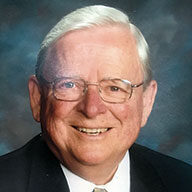 |
A blueprint for living out our life of faith
Markings are meaningful. We’ve learned to look for them when making purchases of items like clothing or electrical appliances. Did you know that Christians bear markings too? Followers of Christ are marked with his love. In his blueprint for Christian living, James reminds us that faith is active in showing love.
Farce
In James 2:1-4, James pointed out a farce in the behavior of his readers. They were showing favoritism toward the rich. Some may have excused their behavior by simply saying, “We are simply showing love to all people.” James would agree that “the royal law,” the one that is king over and includes all laws, is “love your neighbor as yourself.” If their actions toward the rich came from such love, they were “doing right.” If not, the very law to which they appealed convicted them as “lawbreakers” (2:8,9).
James goes to the core of their deception. “Whoever keeps the whole law and yet stumbles at just one point is guilty of breaking all of it” (2:10). Just one sin makes a person guilty of the whole law. That whole law is stamped with God’s authority. To disregard any part of it is to disregard his authority. We can understand this point. One crack ruins a car’s windshield. One wrong letter misspells the whole word. Their behavior was a farce—discriminating and favoring some while still bearing the name Christian.
Have we ever tried this farce? We too stand guilty of breaking the law by showing favoritism. James has told us that it takes only one sin to ruin us. And look how many we have!
Force
James’ words, though, were aimed at the discovery of hypocrites, not the discouragement of saints. So he moves on to God’s love, which is a freeing force. With “the law that gives freedom” (2:12), James refers to the entire Word of God, just as he did in verse 25 of the first chapter. The gospel of Jesus is in that Word. Only the Savior’s perfect death can free people for life in heaven and service on earth. Animals need to be prodded. Objects need to be pushed. Yet believers are powered by God’s love in Christ.
This same “law that gives freedom” will judge us. James doesn’t mean that we gain mercy from God as we give mercy to others. That would contradict clear words of Scripture: “A person is justified by faith apart from the works of the law” (Romans 3:28). Instead, our invisible faith will be demonstrated by visible mercy toward others. It’s just as Jesus told his disciples in the parable of the sheep and goats (Matthew 25:31-46).
It’s good for us to remember the coming judgment. It’s even better for us to remember that on that day the only safe spot will be a cleft in that merciful, loving Rock of ages. But while we are here on earth, we who have shared in his mercy will show his mercy. Our efforts may be feeble and pathetic, but they will be there with his love as the force behind them.
Digging deeper
- Explain how love for our neighbor is the royal law. See Matthew 22:39,40; Galatians 5:14; Colossians 3:12-14. In Matthew 22, Jesus summed up the law in two sections. The first is to love God totally, and the second is to love our neighbor as ourselves. Paul in Galatians combined the two, reminding us that our love for God shows in the way we love our neighbor. Behind this love is God’s awesome love that fills our hearts and fuels our lives with such love. What could be greater than such love?
- How did Jesus fulfill the royal law for us? See Mark 10:45. What greater example of love for others can we point to than Jesus’ saving love for sinners. He exchanged his throne of glory for the altar of the cross—all because of his love.
This is an article in a continuing series on the book of James.
Author: Richard Lauersdorf
Volume 108, Number 10
Issue: October 2021
- Psalm 103: When you count your blessings
- Psalm 91: When God lifts you up on his lap
- Psalm 4: When you draw nearer to the end
- Psalm 42: When you ask, “Where is God when I’m hurting?”
- Psalm 32: When you need forgiveness
- Psalm 130: When rocks fall
- Bible study: Freedom in service
- What does this mean for me? Article 6
- Bible study: Spiritual gifts
- What does this mean for me? Article 5
- What does this mean for me? Article 4
- Bible study: Rejoice in your status!
- Bible study: Baptismal blessings
- What does this mean for me? Article 3
- What does this mean for me? Article 2
- Bible study: Gifts of tongues and miraculous healing
- What does this mean for me? Article 1
- Bible study: Jesus is everyone’s Savior
- Bible study: Love one another
- Bible study: Above all things!
- Bible study: The comfort of God’s providence
- The book of James: Waiting for Christ’s return
- Bible study: Precious grace
- The book of James: Active in using prayer
- Bible study: Rewards of grace
- The book of James: Active in showing love
- The book of James: Correctly evaluating riches
- Bible study: What’s going to happen on the Last Day?
- The book of James: Avoiding loveless judging
- Bible study: Interpretation practice
- The book of James: Taming the tongue
- Bible study: The Bible’s attributes
- Bible study: The importance of the family altar
- Bible study: God’s attitude is grace
- Bible study: The Bible’s account of Easter morning
- Bible study: Different types of sin
- Bible study: God’s inspiration
- Bible study: Giving God glory
- Bible study: Judge for yourself
- The book of James: Using the Word of Truth
- Bible study: The need for the Bible and worship
- Bible study: Citizens of two kingdoms
- The book of James: Active in good works
- The book of James: When battling temptation
- Bible study: God cares
- Bible study: God made the world
- The book of James: When facing trials
- Bible study: A loving God saved people from hell
- The book of James: A blueprint for living out our life of faith
- A Bible story just for me: Guilt
- Bible study: God provides victory over death!
- A Bible story just for me: Anxiety
- Bible study: God forgives and refuses to remember our sins
- A Bible story just for me: Grief
- Bible study: God helps those who cannot help themselves
- A Bible story just for me: Depression
- Bible study: God has not grown soft on sin
- Bible study: Only one path leads to God’s presence
- A Bible story just for me: Trauma
- A Bible story just for me
- Bible study: God wants me in heaven
- Bible study: The incarnation of our Lord






